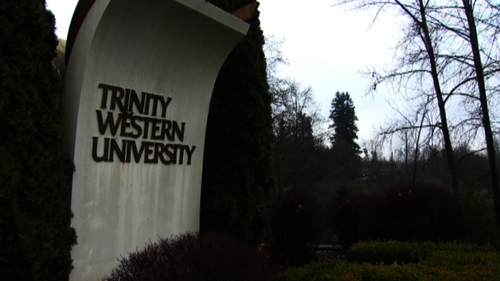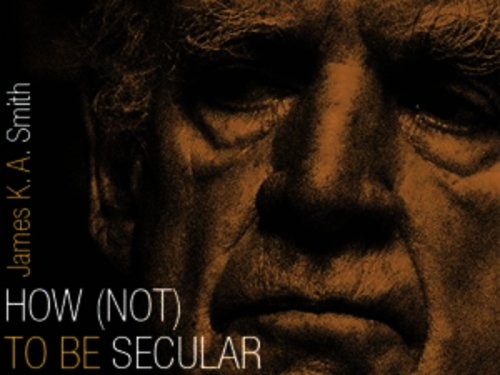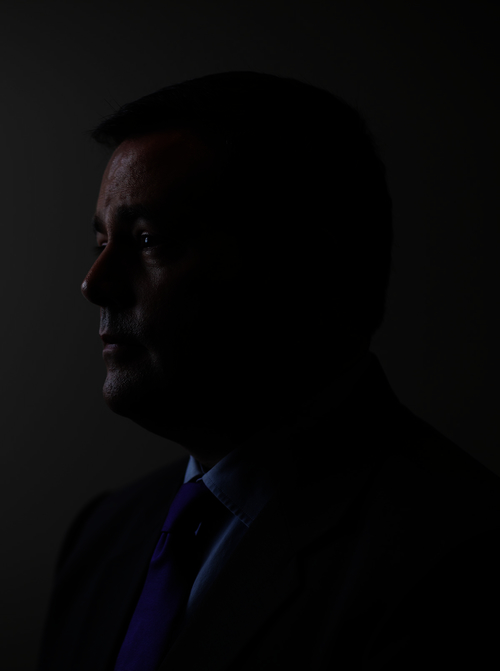Now that the Ontario election is over, Queen’s Park needs to act decisively to find as many means as possible to stem the flow of red ink from Ontario’s books. And while there will no doubt be heated discussion about where to find these savings — whether through cuts or attrition — there is one major policy change that is hiding in plain sight that could save anywhere from $190-million to $283-million per year. This policy change wouldn’t require new investment. In fact, it requires the government to do almost nothing except bring its procurement practices in line with those of almost every other province and developed country. Actually, it’s even simpler than that: Ontario’s government and its major cities can save money just by bringing construction procurement in line with what its own laws, guidelines and practices already require. Despite such requirements, cities such as Toronto, Hamilton, Sault Ste. Marie — and now the Region of Waterloo — take construction-project bids only from a limited pool of contractors who are affiliated with a particular union. In other words, workers and contractors can be shut out of bidding on hundreds of millions of dollars’ worth of work because they exercised their basic freedom to associate with someone other than the particular union that holds the monopoly. In 2012, the Hamiton-based Cardus think tank discovered that over $900-million dollars per year was tied up by such monopolies. The unions that benefit from the monopoly suggest that the cost increase is a modest 2%, while other estimates suggest it is an order of magnitude higher. Cardus’s forthcoming paper, Evaluating Closed Tendering in Construction Markets: the Need for Fairness and Fiscal Responsibility, covers a wide range of empirical studies on competition in government construction procurement. These suggest that Ontarians are paying 20% to 30% more for construction projects that are subject to closed tendering. That means that every time a water treatment plant is built in Hamilton, Toronto, Sault Ste. Marie, every time carpentry work gets done in the Region of Waterloo, taxpayers are paying 20% to 30% too much. There is absolutely no justifiable reason for this. As we note in our paper, it is universally acknowledged that public procurement is intended to serve “the good of the general public, as contrasted with the particular individuals or firms involved in a decision.” In fact, the importance of competition is so universally accepted as the best way to attain value for the public that Ontario’s law, and all of its procurement guidelines, supposedly require it. Take the Ontario Municipal Act: “Municipalities shall not confer on any person the exclusive right of carrying on any business, trade or occupation.” Or, take Ontario’s Broader Public Sector Procurement Directive, which also mandates open, competitive bidding. The reason that directives and laws like these are in place in all OECD countries is that there is a consensus that competition creates the best value for the government, and minimizes the possibility of corruption. As we note in our paper, the structural framework for bidding on major municipal projects in Ontario is analogous to those that, in Quebec, led to the culture of corruption traced in the Charbonneau Commission’s interim report. Premier Kathleen Wynne has set an ambitious goal for her government: to balance Ontario’s budget without making cuts. Allowing Ontario municipalities, school boards, and other public entities to fall in line with what is already mandated by the province will help her accomplish that.

Dijkema in National Post: Get rid of Ontario’s closed union shop
June 20, 2014

Milton Friesen: How Buildings Boss Us Around
Social Cities director Milton Friesen wrote about how much design matters for The Seekers Journal, a publication from the Tamarack Institute. Some of Whyte’s insights are that people sit where there are places to sit. If there is no seating in a plaza, there is much less socializing. They calculated it as one sitting place for every 30 square feet of plaza. It was also observed that socially dense areas get denser; we like the comfort of a herd, even if we don’t know the people in it. We also like corners, ledges, double wide benches and moveable chairs, even if we move them in weirdly random ways. We just want to be able to tweak a space before we commit. There are many other insights and significant amounts of other research have run down the path of humans and our relationship to spaces. I just want to say that our buildings are not in total control but they are far from non-factors in our efforts to build human connections and deepen community.Read the rest of "Bricks and Mortar Masters" at the Seeking Community blog.
June 19, 2014

Faith in the City: Part IV—American Muslims and the Civic Good
June 9, 2014

How Jim Flaherty’s reflections on D-Day speak of service
As much as any people, Canadians are justified in our tradition of treating summer as the season of hard-earned indulgence. Spend a winter in this country anywhere east of Tofino and you have won entitlement to days of warmth and ease from June to September. Yet there was a time when Canada's summer began not in stored-up indolence but in the bloodiest sacrifice a nation could call upon its citizens to make. At Dieppe in 1942 and then again on the beaches of Normandy on June 6, 1944, Canada asked its young men to run against the guns in hope of freeing the world not only from tyranny but from unadulterated evil. That, too, was part of a Canadian tradition, already embedded deep in the psyche of a country then so young, of heroism and self-giving at Ypres, Passchendaele and Vimy Ridge. Our remembrance of those events conventionally comes with the cold of November 11. But in May 2013, federal finance minister Jim Flaherty was part of a small Canadian delegation that visited European battlefields where Canadians fell, en masse, fighting for freedom in two world wars. Flaherty's recollection of the visit appears in the new issue of Convivium magazine, the publication that Calgary native Father Raymond de Souza and I oversee with the goal of fostering faith in common life. Beautifully spare and evocative, Flaherty's essay is more than an exercise in memory. It is a meditation on service so consuming it portends sacrifice of life itself. "The starkness is sorrowing," Flaherty wrote. "We are a small group—no one else is present. We walk on the beach at Dieppe where these young Canadians died. They never had a chance there on the beach, facing the machine guns above. Now we see some of their graves, row on row of individual tombstones. Some bear no name but the inscription 'Known only to God.'" Sorrowing. So perfect a word for the segue from starkness to a knowledge so intimate it belongs to God alone: the intimate knowledge of the name of the one—of the many—who fell, bloodied, for service, in sacrifice. Sorrowing. Such an Irish keening word from a man who was so proud of his Irish storytelling heritage. Was, of course, because Flaherty died unexpectedly in April, only three weeks after retiring from his cabinet post. As Father de Souza wrote in his eloquent National Post column, and expanded on in his Convivium farewell for Flaherty, the country was shocked and saddened by the loss of the minister who deftly steered us through the global financial calamity of 2008-2009. Yet from that sorrowing, from his posthumously published words, comes a call to set down at least some of the cynicism toward political service that we carry with us as the mark intellectual and conversational fashion. There is something of the unthinkable in thinking of gratitude moving from Canadians, so blessed to live in this country, toward politicians such as Jim Flaherty, who serve and sacrifice to bring our blessings to life. The majority of us, in our public language at least, seem as incapable of associating politics with sacrifice as we would be of wading ashore in the freezing waves of Normandy onto narrow beaches thanatic with gunfire. Our images of political service are invariably hyper-crowded with clichés of self-interest, self-importance and silky sinecures. The very way in which the last words of a man as powerful as Canada’s finance minister came to be published in our small magazine forces recognition of the superficiality of such stereotypes. Father de Souza and Flaherty fell into conversation last year during a mutual airport stopover, and the finance minister spoke movingly about the effect of visiting Normandy. As a good journalist does when a good story is being told, our editor asked Flaherty to publish his thoughts in Convivium. The minister demurred, calling himself "not much of a writer." Several months later, his text blew in over the transom bearing the simple directive: "Edit as you see fit." No communications minions massaged the message. Neither party agenda nor political ploy was presented. No hint of the globules that gum up so much of democratic life. Just stark, authentic, heartfelt words from a man, albeit a politically powerful man, addressing the matter that moved him most: service and sacrifice even unto death. We are entitled to indulge our sorrow at the loss those words convey. Yet thankfulness becomes us, too, as we remember the great and true tradition that has forever given our country life. This piece was originally published in the Calgary Herald on June 5, 2014.
June 5, 2014

Ontario needs school choice
Cardus senior fellow Deani Van Pelt has co-written an article with Jason Clemens that appeared in the National Post entitled, "Ontario Needs School Choice." "Ontario is one of five provinces that does not support parents who chose independent schools," they wrote. "These schools are often designed around a diversity of educational philosophies and arise from local communities working together to respond to identified student needs." You can find the complete article on the National Post website.
May 26, 2014

Fr. de Souza criticizes Trudeau’s abortion position
Fr. Raymond J. de Souza made a guest appearance on Power and Politics to provide perspective on Justin Trudeau's position on abortion. "Mr. Trudeau says he deeply cares about pro-life people, and then he invites them to sign a pro-choice petition," says Fr. de Souza. "It's a very strange posting on his website." Watch the segment here.
May 20, 2014

Critics keen to put Christian law school out of business
Imagine the largest law society in Canada resorting to the worst faults of monopoly capitalism to score a political point. It’s a frightening prospect whether you regard it from the perspective of the law, politics or business. Yet it’s precisely what the Law Society of Upper Canada fell prey to with its recent vote to bar future graduates of Trinity Western University’s law school from practising their profession in Ontario. TWU is taking the threat so seriously, that it announced Tuesday it has launched legal action against the law society. Toronto lawyer Clayton Ruby, a harsh critic of TWU, is also involved in legal action to block its law school from opening in 2016. In the court of public opinion, criticism of the LSUC’s decision, as well as a similar decision by Nova Scotia’s law society, has focused on it being a violation of religious freedom. TWU is an evangelical Christian institution. The concern that prompted the law society action is the school’s so-called community covenant pledging students to engage in sexual activity only within monogamous, heterosexual marriage. It is understandable to see the controversy as strictly a religious-secular conflict. It’s easy to frame it as a divide between Christian moralism and the discriminatory prohibition of legally married homosexual Canadians from a law school to which they would otherwise be admitted. What gets lost in that perspective, however, is the means by which the Ontario and Nova Scotia law societies have chosen to press their case for their political ideal of inclusivity. It is a classic restraint of trade tactic to put a competitor out of business by using monopoly power to target its suppliers and customers. It is major league sports in the era before players’ associations and free agency. It is Microsoft when it declared users of its operating system could employ only its Explorer browser to connect to the Internet. Controlling the access point conditions every other choice. Consider a hypothetical Ontario student canvassing her options for law school. Her academic record is stellar. She’s socially conscious. She volunteers at food banks. No hint of homophobia mars her past. TWU interests her because she wants training in Christian traditions of the law. While she considers her sexual activity no one’s business, she can abide by the school’s community covenant until graduation. It’s no big deal. What is a big deal is that after graduation, she will be ineligible to practise law in her home province. She will have spent three years at a law school accredited by the B.C. Ministry of Advanced Education and the Canadian Federation of Law Societies. She will have signed a covenant that the Supreme Court of Canada has ruled is a perfectly legal and valid requirement for TWU to require as an evangelical Christian institution. Yet no lawyer’s jobs will be open to her in Ontario. She will not even be considered a lawyer in Ontario since the provincial law society has decided, a priori, to reject her for the school she attended. If she’s bright enough for law school, chances are she’ll weigh the costs and decide TWU simply isn’t worth the candle. Hello, McGill? UBC? Osgoode Hall? Multiply that decision over a decade, and you see the impact of the Law Society of Upper Canada’s vote. It’s the same restraint that oligopolistic sports owners imposed with iron will on generations of athletes, or that Bill Gates sought with the Internet Explorer gambit: You’ll come through me, as I want, if you want to get anywhere at all. The real end game, of course, is driving TWU’s law school out of business. In the great tradition of monopoly capitalists, the majority within both the Ontario and Nova Scotia law societies clearly believe their commitment to preserving the necessary order of the day gives moral justification to skirting or perhaps breaking the law. With actual capitalists, the necessary order is the preservation of pure profit at the expense of all others. In the case of the law societies, it is the preservation of a political order — treated as a given, although it is still very much contested — in which sexual rights trump freedom of religion, of conscience, of mobility, of association and all others. When capitalists try to corner any market, government agencies beat them back with legal sticks. Legions of lawyers, many members of the Law Society of Upper Canada, get into the act. And that, ultimately, is what’s so troubling about the LSUC’s — and its Nova Scotia counterpart’s — actions. It’s not just the underlying anti-religious — even anti-Christian — bigotry. It’s the disrespect for two laws. The first is for the law as settled by the Supreme Court of Canada. The second is for the law of supply and demand that is essential to a free, pluralistic society. Market manipulation is always frightful. When it’s the work of law societies claiming the high moral ground for their own political business, it’s actually something even worse. It’s shameful.
May 7, 2014

The Gospel Coalition’s interview with James K.A. Smith
James K. A. Smith, professor of philosophy at Calvin College, has written a book entitled How (Not) to Be Secular: Reading Charles Taylor (Eerdmans, 2014), interacting with and applying Charles Taylor’s magisterial volume, A Secular Age (Harvard University Press, 2007). Of Smith’s book Tim Keller writes, “As a gateway into Taylor’s thought, this volume (if read widely) could have a major impact on the level of theological leadership that our contemporary church is getting. It could also have a great effect on the quality of our communication and preaching. I highly recommend this book.” Professor Smith was kind enough to answer a few questions. Who is Charles Taylor and why should we care about what he has written? Taylor (b. 1931) is a Canadian philosopher who taught for decades at McGill University in Montreal, though he also held appointments at Oxford and Northwestern over the years. Over the past several years, his work has made a significant impact on my own. I think this is because he sort of “contains multitudes,” as Whitman might say. He is a unique blend of scholar. Taylor is a philosopher who is equally at home in both “analytic” and “continental” camps. But he also puts his philosophical expertise to work on cultural analysis, ranging into history, theology, psychology, economics, and more. Of course, this also gets him into trouble with the specialists, but that’s the price one pays for being a fox and not a hedgehog. Finally, Taylor is a serious Christian public intellectual. He is a Catholic philosopher who is willing to take a stand for his faith, and also willing to argue that his faith perspective makes a difference for theorizing. Indeed, Taylor is an “apologist” of sorts, one who is nuanced, complex, humble, with right-sized expectations of what one can hope to accomplish. Lots of evangelicals are quite fascinated with “apologetics”; I wish more of them were interested in apologists like Taylor. What makes his writing inaccessible for many readers? Ha, good question! I think it’s a combination of things. First, there is just the sheer daunting size of big books like Sources of the Self and especially A Secular Age (900 pages!). Not for the faint of heart. Second, in later books like these, Taylor’s “method” is essentially narratival: he’s helping us make sense of our present by offering an account of our past. He’s kind of a genealogist. So his arguments wend and wind through nooks and crannies of cultural history that can often be foreign to us. I have a couple of my own idiosyncratic hypotheses about his difficulty. For example, I wonder if there’s something about Taylor’s bilingual fluency that actually generates English prose that is kind of tortured. (I find the same experience reading Dutch philosophers for whom English was a second language.) And, to be honest, I think Taylor’s editors at Harvard University Press were just somehow too intimidated by him or something (or maybe Taylor was stubborn!). Because A Secular Age could have been a much better book if it was 2/3 the length. That said, it’s not like he’s unreadable. I suggest reading him while listening to Arcade Fire’s “The Suburbs.” There’s something mutually illuminating in the Quebec connection and their shared sense of “the malaise of modernity”! If that doesn’t work, trying reading some Derrida for a while, and then pick up Taylor. That’ll make Taylor seem clear as day! What is Taylor’s thesis on secularism? Taylor offers a different taxonomy for understanding “the secular,” secularism, and secularity. Most of us, including those who touted “secularization theory,” identify secularization with a-religiosity. In other words, something or someone is “secular” in the sense that they “don’t believe,” are not “religious.” I think this is one of the reasons why outlets like the New York Times or The New Republic can just talk about about religious people as “believers,” whereas everyone else—that is, the editors of NYT and TNR!—are not. If you buy this sort of notion of secularization, then modernity is what Taylor calls one big “subtraction story”: modern Enlightenment rationality is what’s left over when you subtract the superstition of religious belief. Subtract religion, and what you’re left with is “secular” rationality. Taylor doesn’t buy this because, as he tries to show, modernity was not just about the subtraction of God and religious belief; it also required the substitution of something to take its place—what he calls “exclusive humanism,” the belief that one can find meaning and significance without any recourse to the gods of transcendence. For Taylor, even though he ultimately disagrees with it, this is the productive accomplishment of modernity: exclusive humanism is a remarkable feat of addition, not the remainder of some subtraction. You’ll note what’s embedded in his point: exclusive humanism is something you have to believe. So the world is not carved up into “believers” and “secular” rational knowers. It’s a complicated array of different sorts of believers. And that’s why Taylor calls ours a “secular” age: not that we are a-religious or no longer believe, but that we live in an age in which no belief system is axiomatic. Our beliefs are contestable, and we know it. What motivated you to write this book about a book? I taught a senior seminar on A Secular Age with a group of intrepid Calvin College philosophy majors who ploughed through the book with me. In the course of our discussions, it was clear that something in Taylor’s analysis struck an existential chord for them: it helped them make sense of the fraught world they inhabit. As I spent more time with Taylor’s book, I also realized that this would help lots of pastors and church planters better understand “secular” environments like New York or Seattle or Austin. But I realized—and completely understand!—that pastors and practitioners don’t have the time to wade through Taylor’s huge book, so I wanted to try to crystallize and compress his analysis and tie it to some contemporary cultural hooks in a way that could help those who find themselves immersed in such contexts. I’ve talked elsewhere about the necessity for pastors to be ethnographers; I think Taylor’s argument—and hopefully my book—can equip them to do that a little better. I also hope it reframes what it means to engage a “secular” context. If Taylor is right, this shouldn’t be seen as a battle. Instead, we should recognize all the persistent longings for transcendence that characterize our secular age. To proclaim the Gospel in such a context is not a matter of guarding some fortress; it’s an opportunity to invite our neighbors to meet the One they didn’t even realize they’d been longing for. How does Taylor, as a Catholic, understand the Reformation in light of his thesis on secularism, and what do you think about his understanding in light of your own Reformed theology? This is an important question. The answer is, “It’s complicated.” On the one hand, Taylor is quite laudatory about the Reformation and deeply sympathetic. On his account, the Protestant Reformation is part of a broader, late-medieval “Reform” movement that calls into question versions of “two-tiered” Christianity that devalued the faith of laypeople. In Taylor’s formulation, part of the Reformation’s renewal was “the sanctification of ordinary life”—a sense that all of life would be lived coram Deo, before the face of God. So it wasn’t just priests and nuns who had “sacred” vocations; the same could also be true of butchers, bakers, and candlestick makers. Domestic, family life was just as “sacred” as cloistered celibacy, and so forth. For a Kuyperian like me, this sings of “every square inch,” if you know what I mean. On the other hand, Taylor also argues that the Reformation introduced trajectories that would later lead to the “disenchantment” of the world. The story here is “Frankenstein-ish” in the sense that he sees this as an unintended outcome of what were good motives. (Dr. Frankenstein had the best of intentions!) While the Reformers rightly sought to reject superstition, the result was that they sort of de-sacramentalized creation and Christian worship. The world become ontologically “flat” rather than, as Gerard Manley Hopkins put it, “charged” with the grandeur of God. In other words, we’re all Zwinglians now. (Taylor is not the only one to make point this out; consider also the careful argument of historian of science, Peter Harrison, in his important book, The Bible, Protestantism, and the Rise of Natural Science.) As a Protestant, I take this criticism very seriously, even if I might ultimately disagree. But before I defend Protestantism, I think it’s important to hear this and consider in what ways it is true. It should occasion some self-reflection for us. I think the work of J. Todd Billings, for example, is an example of a Reformed, Protestant theologian who, in some ways, is sympathetic to Taylor’s point, but then who shows that the Reformed tradition has resources—right there in Calvin—to counter this picture.
May 1, 2014

Cardus mentioned in The Walrus
In a feature on Min. Jason Kenney in the current issue of The Walrus, writer Marci McDonald sets the scene at Work and Economics event Canada's New Industrial Revolution, at which Min. Kenney, in his role as Minister of Employment and Social Development, was the keynote speaker. Cardus executive vice president Ray Pennings is quoted: Although Kenney has shown an increasing willingness to compromise, friends cannot imagine that, like Harper, he would water down his religious principles for the exigencies of realpolitik. Certainly, they cannot imagine him betraying his pro-life convictions. “These aren’t tags Jason conveniently holds to appeal to a constituency,” says Ray Pennings, executive vice-president of Cardus, a conservative Christian think tank. “This is who he is in his bones.” Convivium editor Fr. Raymond J. de Souza was also quoted in the article, and Ms McDonald mentioned Pennings and de Souza in an interview on CBC's Power and Politics, which you can watch on video here. The full text of the article, which also includes quotes from Convivium editor Fr. Raymond J. de Souza, is available at thewalrus.ca.
May 1, 2014
